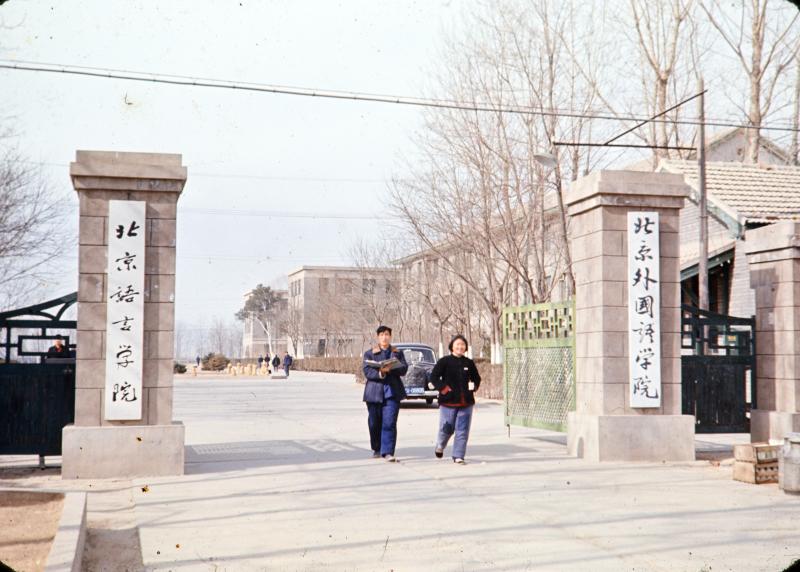40 years of reform in China: Truly remarkable change since 1978
- By Colin Mackerras
 0 Comment(s)
0 Comment(s) Print
Print E-mail China.org.cn, December 6, 2018
E-mail China.org.cn, December 6, 2018
We mark now the 40th anniversary of China's reform and opening up policy, which began at the end of 1978. These comments are from one who has been visiting and living in China on a very frequent basis since before 1978, and who has visited China every year since 1978, except for 1984.
My summation is that these have been possibly the most remarkable 40 years in China's long history, with enormous changes and achievements grand in their scale and overall extremely positive in their impact. I feel very honored to have been a witness to these changes and achievements.
The most important of these achievements has been the economic growth, which many observers have labeled as "miraculous." It has brought China from a relatively poor country to the world's second-largest economy.

I want to illustrate the change through two pictures I took from exactly the same place but at different times. The place is in Yan'an, northern Shaanxi province, which is often described as the "cradle of the revolution." The times were the summer of 1965 and this June. The first picture shows a bleak and grey mountain with very little greenery, a muddy river, and no modern buildings. The second shows a modern town. The mountain is now covered with greenery, the river flows better, and beside it there are green banks where once there was nothing but greyness and dirt.

Economic improvement takes many forms. The transport system has improved out of sight to include a vast complex of modern motorways. Even small cities are now home to excellent airports. Above all, China now has the world's best high-speed railway system. I've been on these trains many times and think they are simply wonderful: comfortable, smooth and reliable. They are also always on time. I recall once going on a train when there was a violent thunderstorm and heavy rain. The weather made virtually no difference. The train was only two minutes late and was as comfortable and smooth as ever.
Then there is the spectacular rise in the living standards of the people, including the increase in literacy, life expectancy, and health standards, as well as improvements in housing, access to tourism, and other luxuries. The changes can also be seen in the basic elimination of absolute poverty, the drastic lowering of maternity and infant mortality, and the ability to control epidemics and hunger.

Society and culture have also changed remarkably. People are much more confident and open to the outside world than in the past and, in contrast to many other countries, the choices leadership and people make are more rational and evidence-based. The way people pay everything with WeChat and Alipay is extremely impressive. I used to be afraid of this, thinking I could easily lose my money. But I've really taken to it now. It is so convenient and easy to use, and I doubt it is any less secure than cash or cards. It seems to me that China is modernizing rapidly towards reducing the use of cash in a way even Western advanced countries cannot match.
Of course, China still faces problems. The economic growth has entailed great disparities in wealth and income, as well as significantly more pollution in the air, rivers and other bodies of water, and overall carbon dioxide emissions. To be fair, China seems to be doing something about this. In a visit to Xinjiang in August, I was impressed by the number of windmills there creating wind energy. Recyclables are definitely on the increase, though I suspect it will be a long time before dirty coal-based energy goes out of use.
As we know, President Xi Jinping proclaimed a new era at the 19th National Congress of the Communist Party of China in October 2017, which will introduce a new phase of national confidence, modernization and prosperity. The Belt and Road Initiative he proposed in 2013 has great potential to improve infrastructure and transport across Eurasia and raise the living conditions in all the countries participating in the BRI, especially those of Central Asia and Africa.
Looking back at how China's world status was when the reform and opening up policies were introduced and comparing with the present, I am impressed with how far it has risen. Historians of the future are likely to see China's rise as one of the key factors in our present age. I could go stronger: China's rise will probably go down in history as the world's most important development of the 40 years from 1978 to 2018.
Colin Mackerras is an Australian Sinologist who has published widely on China's past and present, and Chinese theatre and ethnic minorities. In 2014 he won a Friendship Award and in 2015 a Special China Book Award, both given by the Chinese government.
Opinion articles reflect the views of their authors, not necessarily those of China.org.cn.






Go to Forum >>0 Comment(s)